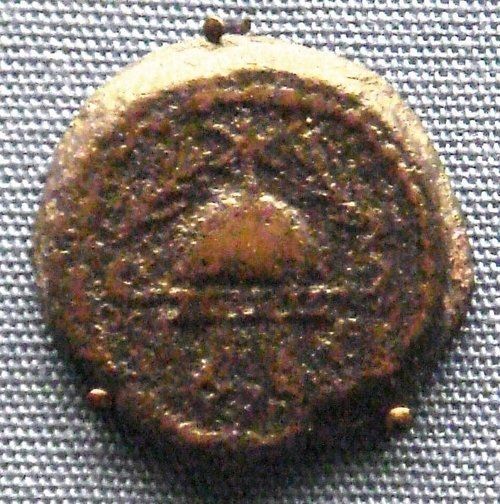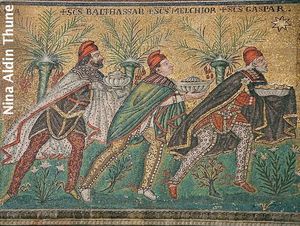History is littered with dead kings. Destined to reign from the beginning of life, they have come at last to their throne. But only for a time. Always, sooner or later, they have come into conflict with death. And death has always carried the day.
There is, however, one remarkable exception to this universal rule. Long ago a child was born to be king, encountered death, submitted to it, but could not be held by it. He now sits upon the throne of a kingdom that is coextensive with the whole of physical and spiritual reality and he is destined to reign forever.
Real facts
If this Jesus (for it’s of Jesus we are speaking) were as much a figure of the past as, say, one of the Tudor kings it would be no great matter if you ignored him completely. You would not be in dereliction of duty. You would not be incurring guilt. You would not be imperiling your immortal soul. You would not be forfeiting eternal life. You would not be a fool.
But the facts about him change everything — the facts that he is, by very nature, God as well as man; that one day we will all appear before his throne; that he holds our eternal destinies in his hand; that those who live and die in opposition to him will certainly perish; and that all who love and serve him will reign in glory with him forever. To ignore or deliberately set yourself against such a king is self-evident folly.
Real people
Let’s bring some real people into the picture. They will help to illustrate both the wisdom and the folly people exhibit when it comes to Jesus the king.
The people in question are as different as chalk and cheese. You can read about them in the Gospel of Matthew chapter 2, verses 1-18. One was himself a king — his name was Herod. The others were magi or wise men from the east. Their backgrounds were different, as were their nationalities. They spoke different languages and had very different callings in life. All these differences are minor, however, in comparison with the gigantic difference in their reaction to Jesus.

Herod and the magi did share a common starting point, namely, learning that a very special king, promised by God, had at last been born. The magi were the first to know. A special revelation in connection with a wonderful star brought them from the east to Jerusalem. Their one question when they arrived was, ‘Where is he?’ What a shock it must have been to find the people there in total ignorance of his birth!
When Herod heard the news, he didn’t laugh or even doubt. He took their visit with the utmost seriousness, found out where prophecy had said he would be born (Bethlehem, not Jerusalem), and sent the magi off to find him, seemingly as eager as they were to worship him.
The wise men had not come all the way from the east out of idle curiosity; they had come to worship this king. And when they found him that is exactly what they did. With great joy, they gave him gifts: gold and frankincense and myrrh. The homage of their hearts was his.
And Herod? He had instructed the magi to return to Jerusalem with the news. He would then come and worship Jesus himself, or so he said. But his intentions were deadly, for when the wise men did not return, having been warned by God in a dream, Herod immediately sent troops to murder every boy in Bethlehem under two years of age — just to make sure.
Real lessons
Herod and the magi: real people and so radically different in relation to Jesus. What can we say about them by way of evaluation and for our instruction?
In Herod we see the folly of rejecting Jesus and refusing him our worship and devotion. Herod raged against Jesus and sought to destroy him. But it was utterly in vain. Jesus’ human parents, also warned in a dream, had taken him to safety before Herod’s troops arrived. Far from gaining anything by his hostility, Herod only deepened his guilt.

So also will you if you take a similar path. Nothing you can do will prevent Jesus from changing people’s lives, coming again, rooting out his enemies, and transforming this world. Neither your fighting nor your ignoring will hinder him in the least. But what immeasurable harm it will do to you! The day of his patience with you will end and he will sweep you to destruction.
But, if Herod illustrates the way of the foolish, in the magi we see the way of the wise. To worship Jesus is to give him his due. It is to recognise him for the divine king that he is and treat him accordingly.
We are truly in our rightful place as humans when we enter Christ’s service. It is also the place of incalculable blessing. To every loyal citizen the king will grant his favour and friendship forever. The magi gave Jesus their gifts. All that you have is to be at his disposal too, but first your heart, your life, your desires and delights are what he rightfully demands. Let him have it all, unreservedly, from this day forwards and forever.
David Campbell is the minister of North Preston Evangelical Church, UK




